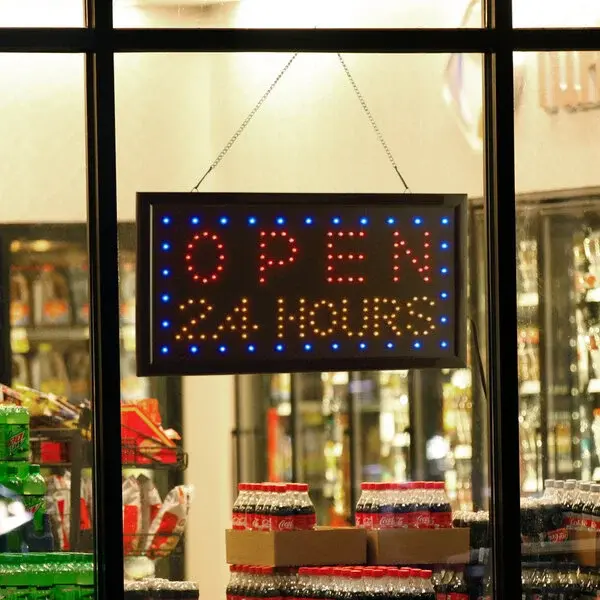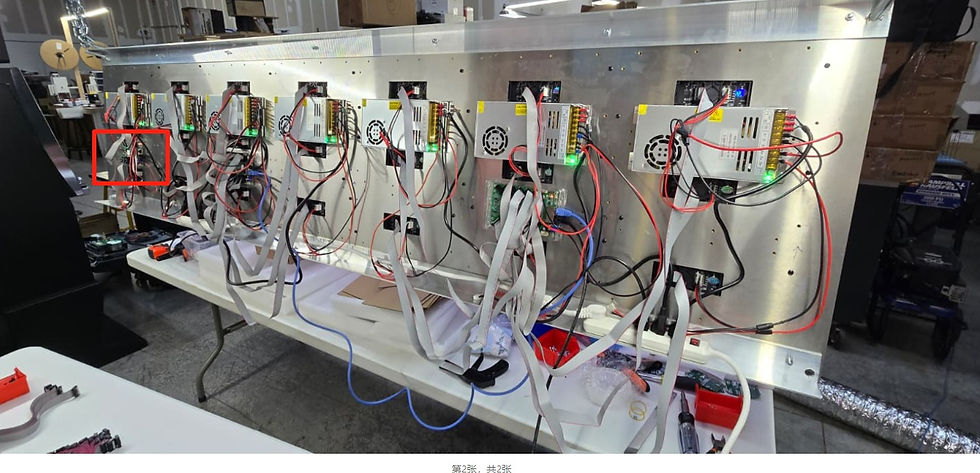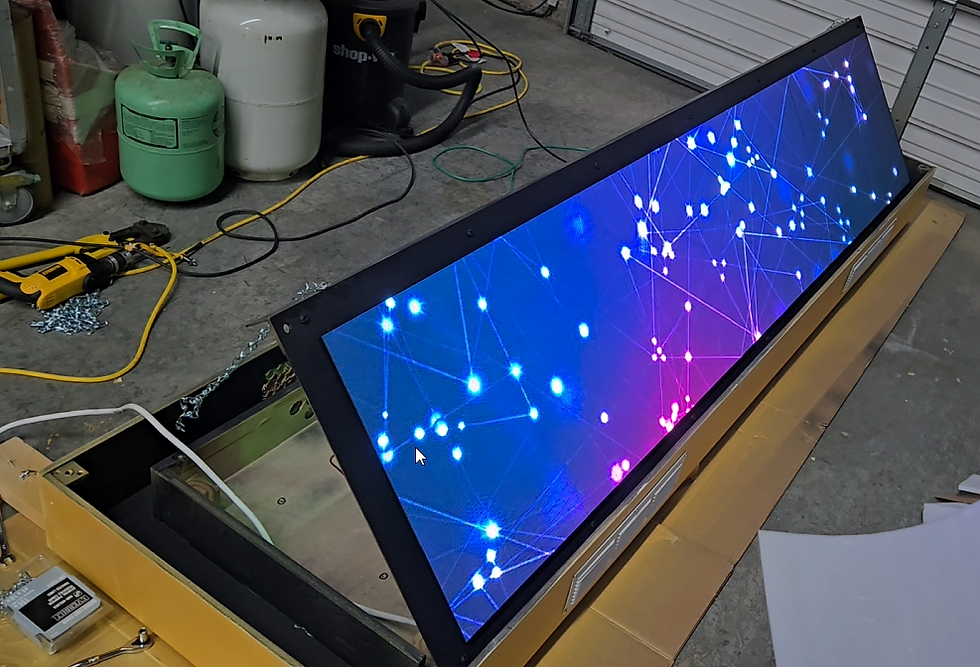The Wonders of LED Matrix Modules using HUB75E
- Chris Cummings

- Aug 18, 2025
- 3 min read
If you look on Tik Tok, Facebook / Instagram or YouTube, you may have stumbled across videos of large and small signs covered in LEDs. The Sphere is a huge example of what is possible:

Much smaller signs are used in all walks of life these days, from Walmart Endcap advertising to Hours Open signs

For nightclubs and bars, Dyzine Tek is now offering these LED signs customized to use-cases and applications. In general, these RGB LED Modules are defined by several attributes:
Resolution / Pixel Pitch - from P1.5 through P10, where the number is the millimeters between RGB LEDs. Dyzine Tek recommends P2 for indoor signs and P5 to P10 for outdoors.
P2

P10

Refresh Rate - The fastest the LEDs can be updated. Low refresh rates can flicker and are more likely to show artifacts when captured on cell phone cameras. Dyzine Tek focuses on modules that allow at least 3,000Hz refresh.
Module Size - The physical size of a module. For a P2 module, you can derive the physical size by multiplying the resolution, say 160 x 80 pixels by 2 to get a module size of 320mm by 160mm. All measurements are in Metric for these modules.
Hardware Protocol - HUB75E is the most common, but there are other protocols, so be careful if looking on AliExpress.com
Data Channels - Usually, an LED module will have more than one data channel, so more than one LED row can be lit at the same time. The channels are usually driven by rows, so a 1:40 scan rate is telling us it has 2 data channels if the module has 80 rows. 1:32 and even 1:8 is possible for outdoor signs, where the LEDs have to be brighter. A 2-channel Module will indicate R2G2B2 in the specs.
LED Modules are often installed in "cabinets". A Cabinet is usually made from die-cast aluminum and houses the power supplies and a device called a Receiving Card (the cabinet may house more than one, but they only service the LED modules in that cabinet). The cabinets can be really elaborate and robust, especially if classified as "Rental Cabinets" meaning they will be moved a lot and can take some abuse.

The cabinets are designed so that their module edges are FULLY exposed. They have to be so cabinets can be butted up to each other to make seamless displays (screens). Great care should be taken so that corners and edges of modules are not damaged in handling for transport and installation. Note the very cool locking mechanisms on this high-end example that allow cabinets to be aligned and tightened up together.
For permanent, indoor screens, other types of frames and support structures are much more affordable. Dyzine Tek designed this one for Havana Club in Buckhead, GA:



We installed this sign in place of an older display that used LED strips:

And we ended up with a great looking animated LED display that the DJ controls with Resolume:
Feel free to reach out to us if you have any LED sign needs that seem too expensive from past investigations. Even with the 35% tariffs from China, we can often beat regular sign companies.




Comments